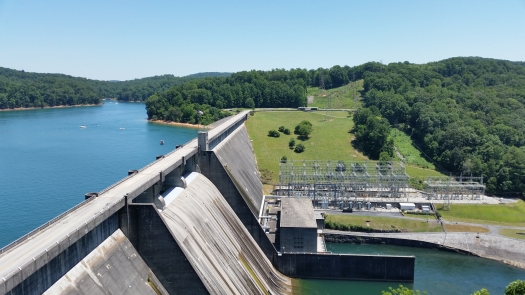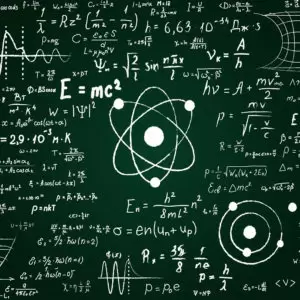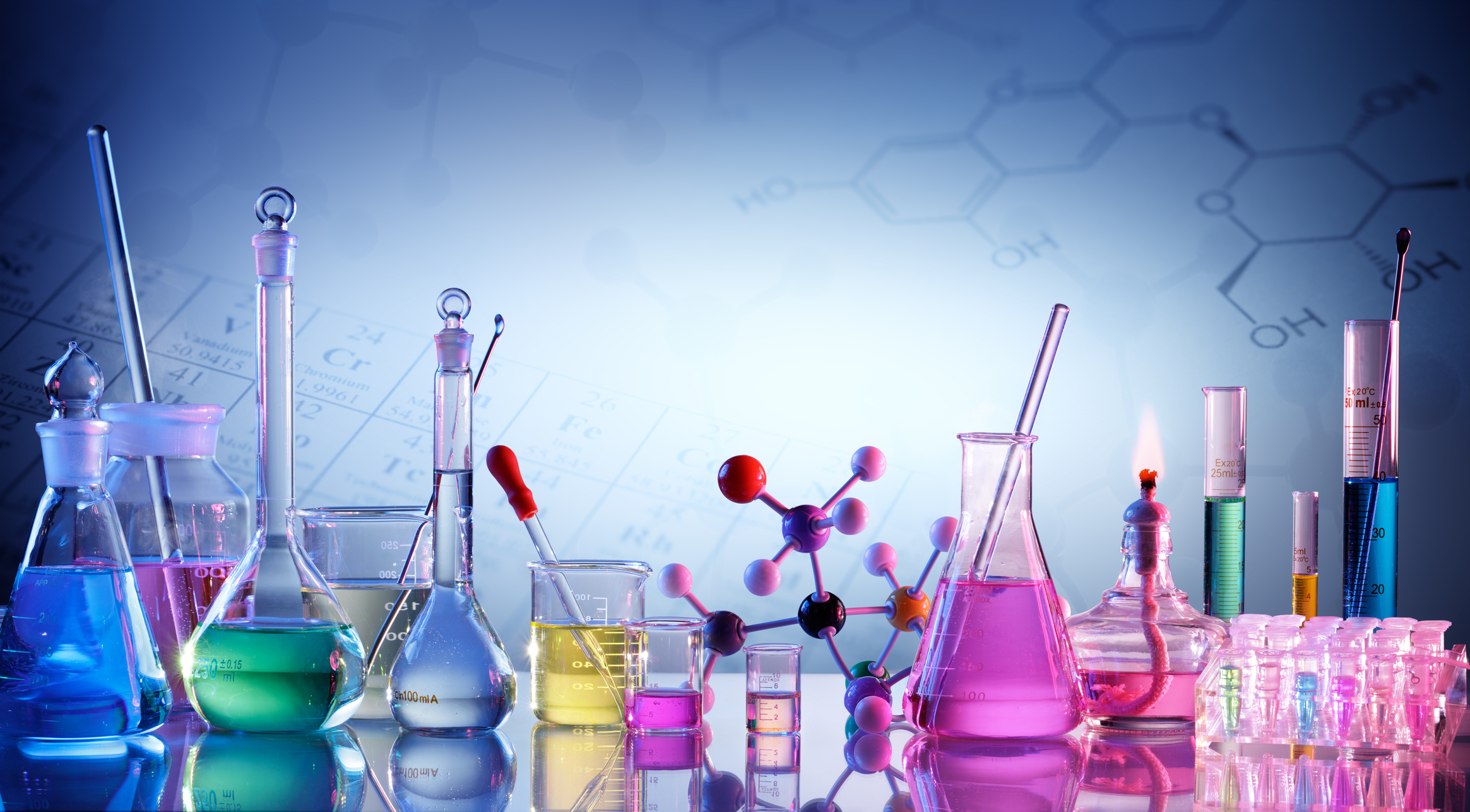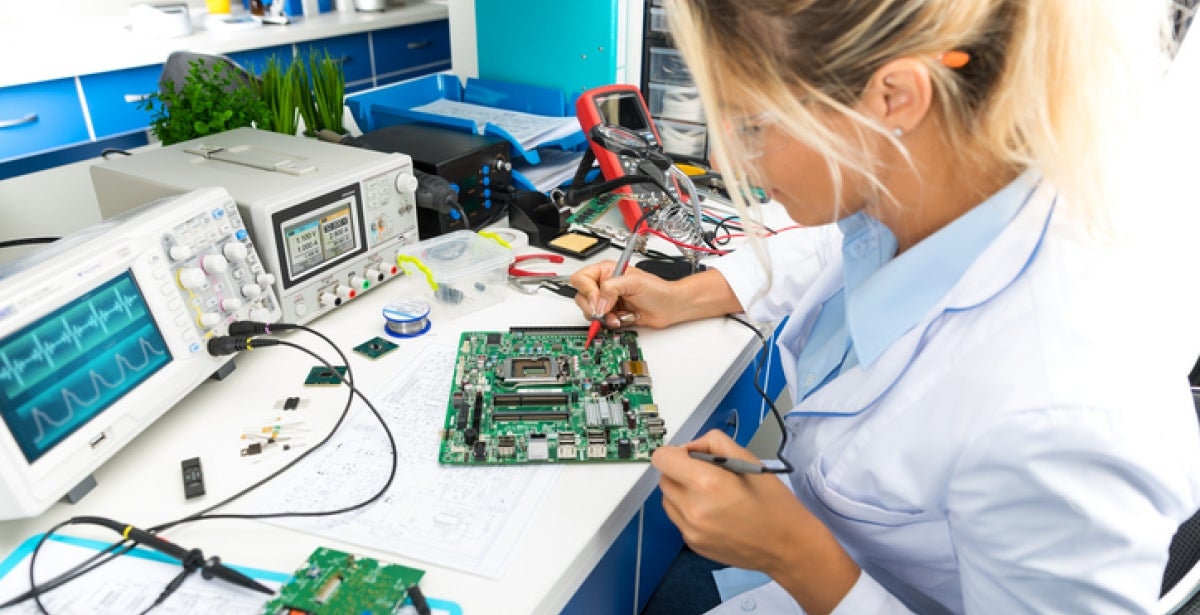ថាមពលនុយក្លេអ៊ែរគឺជាការប្រើប្រាស់ប្រតិកម្មនុយក្លេអ៊ែរដែលបញ្ចេញថាមពលនុយក្លេអ៊ែរដើម្បីបង្កើតកំដៅដែលភាគច្រើនជាញឹកញាប់ត្រូវបានគេប្រើនៅក្នុងទួរប៊ីនចំហាយដើម្បីផលិតអគ្គិសនីនៅក្នុងរោងចក្រថាមពលនុយក្លេអ៊ែរ។ ថាមពលនុយក្លេអ៊ែរអាចទទួលបានពីការបំភាយនុយក្លេអ៊ែរការបំបែកនុយក្លេអ៊ែរនិងប្រតិកម្មលាយនុយក្លេអ៊ែរ។
Nuclear power is the use of nuclear reactions that release nuclear energy to generate heat, which most frequently is then used in steam turbines to produce electricity in a nuclear power plant. Nuclear power can be obtained from nuclear fission, nuclear decay and nuclear fusion reactions
-អាតូម
អាតូមគឺជាអង្គធាតុតូចជាងគេបំផុតនៃរូបធាតុធម្មតាដែលបង្កើតជាធាតុគីមី។ រាល់អង្គធាតុរាវរាវឧស្ម័នរាវនិងប្លាស្មាសុទ្ធតែផ្សំឡើងពីអាតូមអព្យាក្រឹតឬអ៊ីយ៉ូដ។ អាតូមតូចណាស់។ ទំហំធម្មតាគឺប្រហែល ១០០ កន្លែងសម្រាប់ថតរូប។
An atom is the smallest constituent unit of ordinary matter that constitutes a chemical element. Every solid, liquid, gas, and plasma is composed of neutral or ionized atoms. Atoms are extremely small; typical sizes are around 100 picometers.

- នុយក្លេអ៊ែរ

Hydropower or water power is power derived from the energy of falling or fast-running water, which may be harnessed for useful purposes

- រូបវិទ្យា
គឺជាវិទ្យាសាស្ត្រធម្មជាតិដែលសិក្សាបញ្ហាចលនានិងឥរិយាបថរបស់វាតាមរយៈលំហនិងពេលវេលាហើយសិក្សាពីធាតុផ្សំនៃថាមពលនិងកម្លាំង។ រូបវិទ្យាគឺជាផ្នែកមួយនៃវិទ្យាសាស្ត្រមូលដ្ឋានគ្រឹះបំផុតហើយគោលដៅសំខាន់របស់វាគឺត្រូវយល់ពីរបៀបដែលសាកលលោកមានឥរិយាបទ
Physics is the natural science that studies matter, its motion and behavior through space and time, and that studies the related entities of energy and force. Physics is one of the most fundamental scientific disciplines, and its main goal is to understand how the universe behaves









Nuclear power is the use of nuclear reactions that release nuclear energy to generate heat, which most frequently is then used in steam turbines to produce electricity in a nuclear power plant. Nuclear power can be obtained from nuclear fission, nuclear decay and nuclear fusion reactions
-អាតូម
អាតូមគឺជាអង្គធាតុតូចជាងគេបំផុតនៃរូបធាតុធម្មតាដែលបង្កើតជាធាតុគីមី។ រាល់អង្គធាតុរាវរាវឧស្ម័នរាវនិងប្លាស្មាសុទ្ធតែផ្សំឡើងពីអាតូមអព្យាក្រឹតឬអ៊ីយ៉ូដ។ អាតូមតូចណាស់។ ទំហំធម្មតាគឺប្រហែល ១០០ កន្លែងសម្រាប់ថតរូប។
An atom is the smallest constituent unit of ordinary matter that constitutes a chemical element. Every solid, liquid, gas, and plasma is composed of neutral or ionized atoms. Atoms are extremely small; typical sizes are around 100 picometers.
- នុយក្លេអ៊ែរ
នុយក្លេអ៊ែរអាតូមគឺជាតំបន់តូចក្រាស់ដែលមានប្រូតុងនិងនឺត្រុងនៅកណ្តាលអាតូមមួយដែលត្រូវបានរកឃើញនៅឆ្នាំ ១៩១១ ដោយអេនណេស រ៉ូធើហ្វឺតផ្អែកលើការធ្វើពិសោធន៍ក្រដាសពណ៌មាសជីហ្គេន ។
The atomic nucleus is the small, dense region consisting of protons and neutrons at the center of an atom, discovered in 1911 by Ernest Rutherford based on the 1909 Geiger–Marsden gold foil experiment.

- វារីអគ្គិសនី ឬ Hydropower
ថាមពលវារីអគ្គិសនីឬថាមពលទឹកគឺជាថាមពលដែលទទួលបានពីថាមពលនៃការធ្លាក់ចុះឬទឹកដែលហូរលឿនដែលអាចត្រូវបានប្រើសម្រាប់គោលបំណងដែលមានប្រយោជន៍។
Hydropower or water power is power derived from the energy of falling or fast-running water, which may be harnessed for useful purposes

- រូបវិទ្យា
គឺជាវិទ្យាសាស្ត្រធម្មជាតិដែលសិក្សាបញ្ហាចលនានិងឥរិយាបថរបស់វាតាមរយៈលំហនិងពេលវេលាហើយសិក្សាពីធាតុផ្សំនៃថាមពលនិងកម្លាំង។ រូបវិទ្យាគឺជាផ្នែកមួយនៃវិទ្យាសាស្ត្រមូលដ្ឋានគ្រឹះបំផុតហើយគោលដៅសំខាន់របស់វាគឺត្រូវយល់ពីរបៀបដែលសាកលលោកមានឥរិយាបទ
Physics is the natural science that studies matter, its motion and behavior through space and time, and that studies the related entities of energy and force. Physics is one of the most fundamental scientific disciplines, and its main goal is to understand how the universe behaves

- អាគីមីវិទ្យា
គឺជាវិន័យវិទ្យាសាស្ត្រដែលទាក់ទងនឹងធាតុនិងសមាសធាតុផ្សំនៃអាតូមម៉ូលេគុលនិងអ៊ីយ៉ុង៖ សមាសធាតុរចនាសម្ព័ន្ធលក្ខណៈសម្បត្តិឥរិយាបទនិងការផ្លាស់ប្តូរដែលពួកគេឆ្លងកាត់កំឡុងពេលប្រតិកម្មជាមួយសារធាតុផ្សេងទៀត។
Chemistry is the scientific discipline involved with elements and compounds composed of atoms, molecules and ions: their composition, structure, properties, behavior and the changes they undergo during a reaction with other substances

- វិទ្យាសាស្រ្ត
គឺជាសហគ្រាសដែលមានលក្ខណៈជាប្រព័ន្ធដែលបង្កើតនិងរៀបចំចំណេះដឹងតាមទំរង់នៃការពន្យល់និងការព្យាករណ៍អំពីសាកលលោក។ ឫសគល់ដំបូងបង្អស់នៃវិទ្យាសាស្ត្រអាចត្រូវបានគេរកឃើញនៅអេហ្ស៊ីបបុរាណនិងមេសូប៉ូតាមៀនៅប្រហែល ៣៥០០ ទៅ ៣០០០ ម។ គ .។
Science is a systematic enterprise that builds and organizes knowledge in the form of testable explanations and predictions about the universe. The earliest roots of science can be traced to Ancient Egypt and Mesopotamia in around 3500 to 3000 BCE.

- អេឡិចត្រូម៉ាញេទិក
គឺជាសាខាមួយនៃរូបវិទ្យាដែលពាក់ព័ន្ធនឹងការសិក្សាអំពីកម្លាំងអេឡិចត្រូម៉ាញ៉េទិចដែលជាប្រភេទនៃអន្តរកម្មរាងកាយដែលកើតឡើងរវាងភាគល្អិតដែលមានបន្ទុកអគ្គីសនី។
Electromagnetism is a branch of physics involving the study of the electromagnetic force, a type of physical interaction that occurs between electrically charged particles.

- អគ្គិសនី
អគ្គិសនីគឺជាសំណុំនៃបាតុភូតរូបវិទ្យាដែលទាក់ទងនឹងវត្តមាននិងចលនានៃរូបធាតុដែលមានទ្រព្យសម្បត្តិនៃបន្ទុកអគ្គីសនី។ នៅសម័យដើមអគ្គីសនីត្រូវបានគេចាត់ទុកថាមិនទាក់ទងនឹងមេដែក។
Electricity is the set of physical phenomena associated with the presence and motion of matter that has a property of electric charge. In early days, electricity was considered as being unrelated to magnetism.
- អេឡិចត្រូនិច
អេឡិចត្រូនិចរួមមានរូបវិទ្យាវិស្វកម្មបច្ចេកវិទ្យានិងកម្មវិធីដែលទាក់ទងនឹងការបំភាយលំហូរនិងការគ្រប់គ្រងអេឡិចត្រុងនៅក្នុងម៉ាស៊ីនបូមធូលីនិងរូបធាតុ។ គ្រឿងអេឡិចត្រូនិកត្រូវបានគេប្រើយ៉ាងទូលំទូលាយនៅក្នុងដំណើរការព័ត៌មានទូរគមនាគមន៍និងដំណើរការសញ្ញា។
Electronics comprises the physics, engineering, technology and applications that deal with the emission, flow and control of electrons in vacuum and matter. Electronics is widely used in information processing, telecommunication, and signal processing.
- ឧបករណ៍អេឡិចត្រូនិក
សម្ភារៈអេឡិចត្រូនិចមានតំលៃនៃចរន្តអគ្គីសនីធ្លាក់ចុះរវាងចំហាយដូចជាស្ពាន់លោហធាតុនិងអ៊ីសូឡង់ដូចជាកញ្ចក់។ ភាពធន់ទ្រាំរបស់វាធ្លាក់ចុះនៅពេលសីតុណ្ហភាពកើនឡើង; លោហៈគឺផ្ទុយ។
A semiconductor material has an electrical conductivity value falling between that of a conductor, such as metallic copper, and an insulator, such as glass. Its resistance falls as its temperature rises; metals are the opposite.
- វិស្វករអគ្គិសនី
វិស្វកម្មអគ្គិសនីគឺជាវិន័យវិស្វកម្មដែលពាក់ព័ន្ធនឹងការសិក្សាការរចនានិងការប្រើឧបករណ៍ឧបករណ៍និងប្រព័ន្ធដែលប្រើប្រាស់អគ្គិសនីអេឡិចត្រូនិចនិងអេឡិចត្រូម៉ាញេទិក។
Electrical engineering is an engineering discipline concerned with the study, design and application of equipment, devices and systems which use electricity, electronics, and electromagnetism.

-អេឡិចត្រូត
អេឡិចត្រូតអេឡិចត្រូនិចគឺជាសាខាមួយនៃរូបវិទ្យាដែលសិក្សាពីបន្ទុកអគ្គីសនីនៅពេលសំរាក។ ចាប់តាំងពីរូបវិទ្យាបុរាណវាត្រូវបានគេដឹងថាវត្ថុធាតុដើមមួយចំនួនដូចជាអេមបឺរទាក់ទាញភាគល្អិតស្រាល ៗ បន្ទាប់ពីត្រដុស។ ពាក្យក្រិកសម្រាប់អាម៉ឺរήλεκτρονឬអេឡិចត្រុងគឺជាប្រភពនៃពាក្យថាអគ្គិសនី។
Electrostatics is a branch of physics that studies electric charges at rest. Since classical physics, it has been known that some materials, such as amber, attract lightweight particles after rubbing. The Greek word for amber, ήλεκτρον, or electron, was the source of the word 'electricity'.

-អេឡិចត្រូលីត
អេឡិចត្រូទិចគីមីគឺជាសាខាគីមីវិទ្យារូបវិទ្យាដែលសិក្សាពីទំនាក់ទំនងរវាងអគ្គិសនីដែលជាបាតុភូតដែលអាចវាស់វែងបាននិងបរិមាណនិងការផ្លាស់ប្តូរគីមីដែលអាចសម្គាល់បានដោយអគ្គិសនីត្រូវបានគេចាត់ទុកថាជាលទ្ធផលនៃការផ្លាស់ប្តូរគីមីជាក់លាក់មួយឬផ្ទុយមកវិញ។
Electrochemistry is the branch of physical chemistry that studies the relationship between electricity, as a measurable and quantitative phenomenon, and identifiable chemical change, with either electricity considered an outcome of a particular chemical change or vice versa.


